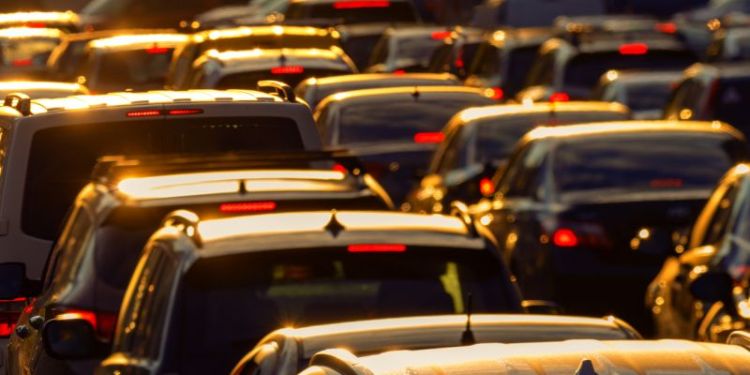Looking at travel decision-making differently

Dr Milad Mehdizadeh’s research focuses on the public’s mobility decisions to support positive action around sustainable transport.

Milad currently works on the INFUZE (Inspiring Futures for Zero Carbon Mobility) project, on which he collaborates with researchers and industry partners to explore the potential for changes in car ownership and use.
Working alongside Professor Jillian Anable, Professor Charisma Choudhury, Dr Chiara Calastri and Primary Investigator Professor Greg Marsden, he conducts trials to understand how people could change their behaviours.
Milad designs the project and trials, and analyses secondary data at the national level to understand how people are changing their travel attitudes and behaviours over time.
In one of his recent investigations, he's looked at data from over 17,000 individuals to find out what drives people to own or use a car over time, including how household members influence each other’s decisions.
He’s partnering with organisations including Climate Action Leeds, Department for Transport, Enterprise Car Club, First Bus, Leeds City Council, and West Yorkshire Combined Authority.

Reducing cars and carbon footprints
The transport sector is one of the major contributors to greenhouse gas emissions.
It's essential to reduce car use and ownership, as well as air travel, while promoting more sustainable travel alternatives. This is what INFUZE aims to support.
Some market technological solutions, like electric or automated vehicles, but Dr Mehdizadeh finds that they are not necessarily the best solutions.
In his research, Dr Mehdizadeh explores how and why people travel. While most research focuses on ‘between-person’ variations in travel behaviour, he challenges this perspective by capturing ‘within-person’ changes.
This means that rather than comparing people’s behaviours to each other, he focuses on individual people’s choices over time.
Imagining alternatives to car ownership
The INFUZE project is in its early stages, and trials are underway. Initial modelling with UK Understanding Society data—a dataset covering over 40,000 households—reveals findings that challenge conventional wisdom and policies.
Milad said: “The results show that our attitudes are shaped more by our behaviours than the other way around. Therefore, we need to focus on creating disruptions in behaviour rather than relying on nudging strategies.

“For radical changes in the transport sector, we need more radical measures, not just soft or pull measures.”
The project team are investigating cities where owning a car is no longer necessary—they want to understand how such cities would look from citizens’ perspectives.
For many people, imagining life without owning a car is difficult. This is where the idea of ‘car access’ instead of ‘car ownership’ comes in.
“Imagine if people did not need to own a car,” said Milad. “We would have more space in our streets for green areas, bicycles, buses, trams, e-scooters, and so on. But how can we make this new world a reality?”
The project team are investigating cities where owning a car is no longer necessary—they want to understand how such cities would look from citizens’ perspectives.
He continued: “I believe that this topic can be controversial, since we have many car lovers in society, and they do not want to give up their own cars. But for a better world for everyone, we need to take action. It is about a trade-off between individual comfort, freedom, and flexibility, and a collectivist perspective to preserve the environment.
“Media plays a significant role here because of social norm effects. People can be influenced by social norms. If the media promotes sustainable and scientific viewpoints, we can motivate more people to believe in the aims of our project.”
About Milad
Milad Mehdizadeh is a Research Fellow at the Institute for Transport Studies.
He has PhDs in both Civil Engineering and Environmental Psychology. He has previously worked on several international research projects in subjects including energy-related mobility innovations, travel behaviour and psychology, and the intersection of transportation with health, environment, energy, and safety.
He said: “I often ask my friends why they travel the way they do. For many, their travel behaviour is driven by habit.
“I believe that people do not easily change their attitudes toward their behaviours, which is why much of the existing research published in academic journals tends to get stuck in a loop.
“I aim to break that cycle by advocating for new perspectives to answer our pressing questions. My recent research using panel data offers some surprising and even contradictory findings that challenge conventional wisdom in the field.”
He continued: “Mobility is one of the main aspects of life and is closely linked to levels of life satisfaction. Some people currently find their way of travelling satisfying, while others do not.
“At the same time, we face many consequences such as air pollution, traffic congestion, and crash incidents. Whatever the outcome, our goal is to create a society that is cleaner, safer, and more relaxed.”
The INFUZE project is supported by the Engineering and Physical Sciences Research Council (EPSRC).
For more information regarding the team members, partners, and organizations, view the INFUZE website.

